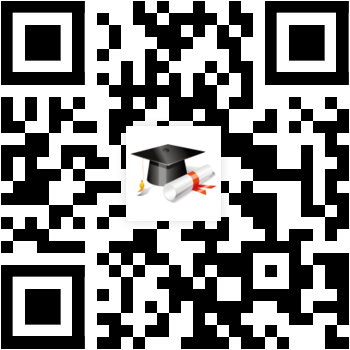中國社會科學院大學2015年攻讀博士學位研究生入學考試試卷
中國社會科學院研究生院
2015年攻讀博士學位研究生入學考試試卷
英語
PART II: Reading comprehension (30 points)
Directions: Choose the best answers based on the information in the passages below.
Passage 1
Plato’s Republic has been the source of great consternation, especially in literary circles, for its
attack on the poets. Socrates in fact asserts that they should have no place in the ideal state. Eric Havelock suggests that there are several misunderstandings in this regard, and in his Preface to Plato he identifies the issues, explains the historical context.
Havelock opens his discussion by suggesting that the very title of the Republic is the source of much confusion. The book is commonly understood to be a treatise on the ideal political entity, but even a casual analysis will show that only one-third of the text is concerned with statecraft. The other two-thirds cover a variety of subjects, but the thrust of Plato’s argument amounts to an attack on the traditional Greek approach to education.
The educational methods still in use in the 4th century BC had their origins in what has been called the Greek Dark Age beginning around 1200 BC when the Mycenaean era collapsed. Very little is known about the whys and wherefores of this collapse, but it wasn’t until around 700 BC that the Phoenician alphabet began to be adapted and used in the Greek-speaking world. During the intervening centuries, all knowledge concerning Greek history, culture, mores and laws were orally transmitted down through the generations. The most effective device in aid of memorizing vast amounts of information was rhyme. The epic form we see in Homer’s Iliad grew out of the need to preserve the Greek cultural memory. Havelock takes the reader through Book 1 of The Iliad and dissects it in detail to show how this cultural, historical and ethical heritage was conveyed. The Iliad takes on new and significant meaning to the reader of this minute examination.
The Iliad and presumably other poetic vehicles were taught to children from an early age. The whole of the Greek-speaking world was immersed in the project of memorizing, and out of the masses arose those individuals with superior memories and theatrical skills who became the next generation of minstrels and teachers. Education was thus comprised of memorization and rote learning, and the people enjoyed constant reminders through public readings and festivals.
Plato’s focus in the Republic and elsewhere is on Homer and Hesiod and to some extent the dramatists which at the time were the centerpieces of the educational regime. Their works presented gods and heroes as fundamentally immoral and thus bad examples for youth. The overall result is that the Greek adolescent is continually conditioned to an attitude which at bottom is cynical. It is more important to keep up appearances than to practice the reality. Decorum and decent behavior are not obviously violated, but the inner principle of morality is. Once the Republic is viewed as a critique of the educational regime, Havelock says that the logic of its total organization becomes clear.
What Plato was railing against was an ―oral state of mind‖ which seems to have persisted even though the alphabet and written documentation had been in use for three centuries. Illiteracy was thus still a widespread problem in Plato’s time, and the poetic state of mind was the main obstacle to scientific rationalism and analysis. This is why Plato regarded the poetic or oral state of mind as the arch-enemy. In his teachings he did the opposite. He asked his students to ―think about what they were saying instead of just saying it.‖ The epic had become, in Plato’s view, not ―an act of creation but an act of reminder and recall‖ and contributed to what Havelock terms ―the Homeric state of mind.‖ It was Socrates’ project (and by extension Plato’s) to reform Greek education to encourage thinking and analysis. Thus all the ranting and railing about the ―poets‖ in Plato’s Republic was limited basically to Homer and Hesiod because of what he viewed as a wholly inadequate approach to education of which these particular poets were an integral part.
Unfortunately, Western culture has misconstrued what Plato and Socrates meant by ―the poets.‖ And because we view poetry as a highly creative and elevated form of expression, our
critics have failed to recognize that Plato’s diatribe had a very specific and limited target which had nothing to do with high-minded creativity, of which there is plenty, by the way, in the proscribed poets. It wasn’t really the poets who were the problem; it was the use of them that was deemed unacceptable.
Post-Havelock, we can now read the Republic with the scales lifted from our eyes and see it for what it really was: an indictment of an antiquated educational regime which had no place in a democratic society.
更多詳細請點擊附件下載: 2015年博士生入學考試英語試題.pdf
2015年博士生入學考試英語試題.pdf
您填的信息已提交,老師會在24小時之內與您聯系
如果還有其他疑問請撥打以下電話

 北京大學
北京大學 北京航空航天大學
北京航空航天大學 華北電力大學
華北電力大學 北京科技大學
北京科技大學 中國地質大學(北京)
中國地質大學(北京)









